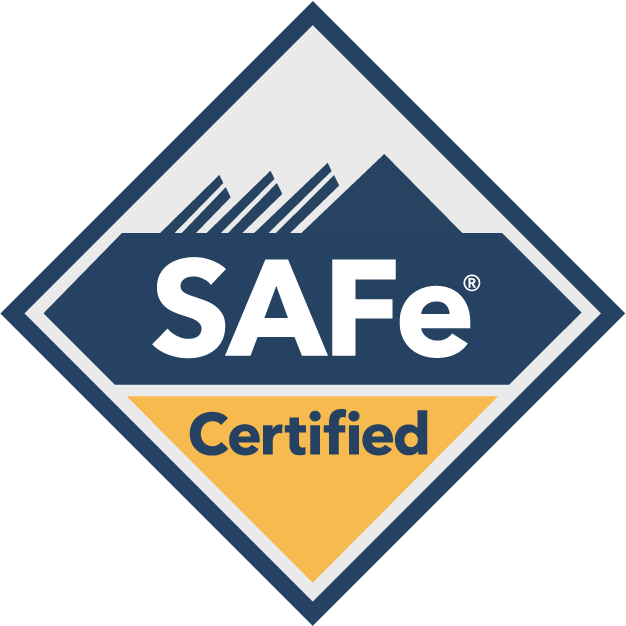Subscribe to the blog
Quality Assurance engineers are usually found overseeing major software projects over weeks, months, or years.
Software has bugs. A lot of them.
And the people in DevOps accidentally write bugs into their code constantly.
It’s part and parcel of the business.
But you would never release software to the public without first double-checking that as many of the bugs as possible have been rooted out and fixed.
That’s not a job for developers. They’re the “writers” in this equation.
Who are the “editors?”
Quality Assurance (QA) engineers.
And they’re an essential part of the software development process.
But what exactly do they do? Just check for quality, or do they test software, too? Is there a difference between them and Quality Control?
We’ll answer these questions and many more to help you fully understand the QA engineer’s role and responsibilities within your organization.
Let’s get started.
What is Quality Assurance?
Quality Assurance or Software Quality Assurance (SQA) can be defined as:
“A part of quality management focused on providing confidence that quality requirements will be fulfilled.”
This definition comes from the ISO 9000, the international gold standard for software quality assurance and management.
As authoritative as this definition is, it may still be unclear to you what exactly QA means.
So let’s break this definition down further.
When we say “quality,” we’re talking about the perception of the customer when they interact with or buy our product. If the software doesn’t meet the customers’ needs and desires, it can’t be considered high quality.
And when we say “assurance,” we’re talking about trust. The stakeholders in software development must have trust that their product is almost entirely free of defects, and that it meets their standards, and that it satisfies the customer in the end.
What is a Quality Assurance (QA) Engineer?
A Quality Assurance engineer is the one who implements the practices and procedures of quality assurance. They’re also responsible for adhering to the principles and standards of the company creating the software.
More often than not, QA engineers will work with companies to develop the standards and requirements for the end product.
QA engineers make sure everything fits together, lines up, and works the way it was written to work.
QA engineers need the following to their jobs:
- All the documentation for the software coding project.
- A description of the end product - the outcome objective.
- The requirements for the software.
And the Qa engineer will provide the following deliverables to the company they work for:
- Checklists
- Audits
- Standards
- Methods
- And Processes
What Exactly Does a Quality Assurance Engineers Do?
QA engineers are distinctly different from testers and coders in that they analyze, not create.
The main thing QA engineers do is monitor each phase of the software development process to find any tiny flaw or error in the code.
A developer shouldn’t write code AND check it for bugs.
They’re too “close” to the project. It’s hard to look at your own creation and point out all the ways you messed up.
That’s why QA engineers are so useful.
The following are the 5 basic functions of a QA engineer:
- Technology transfer - receiving product design documents along with evaluations of trial and error data. These documents are checked and approved before being distributed.
- Validation - process for validating the product is approved. Resources are gathered to execute validation plan.
- Documentation - approval of many different types of documents to control the distribution and archiving of documents.
- Assurance of the quality of products.
- Plans to continually improve the quality of products.
The following are the tasks QA engineers typically perform:
- Software design
- Reviewing code
- Configuration management
- Change management
- Integration of software
- And release management
And QA engineers are expected to make sure software is rolled out to consumers by the expected due date.
To keep everything on track, QA engineers use the PDCA cycle, or Deming cycle. It works like this:
- Plan - organizations plan and establish process-related objectives and set the standards required to deliver a high-quality product.
- Do - developers write the code and testers try it out.
- Check - processes are monitored, modified, and examined to ensure the software meets the project’s objectives (this is where QA engineers shine).
- Act - improvements are implemented and other actions are taken to optimize the software development process.
What is the Difference Between Software Quality Assurance and QA Testing?
If you search jobs for QA engineers and read many of the descriptions, you’ll quickly realize QA engineers are oftentimes hired to be testers.
This is where QA engineering and QA testing become confusing.
A QA engineer is supposed to act more like a project manager or supervisor, overseeing the whole process and virtually guaranteeing everything is on track.
Software testers simply test various aspects of software throughout the development lifecycle.
Both are important jobs, but they’re different. You shouldn’t hire a QA engineer to test software because they have to track so many other moving parts. And likewise, you shouldn’t hire a tester to oversee operations when they’re best used to dig into the nitty-gritty of code.
Here’s a simple breakdown of QA engineers vs software testers:
| Quality Assurance Engineers | Software Testers |
| Oversees organizational operations to ensure products will meet the established standards. | Tests a product for quality before it hits the market. |
| Implements processes, procedures, and standards. | Verifies tests are executed properly. |
| Process-oriented. | Product-focused. |
| Preventative measures are taken. | Corrective actions are taken. |
| Quality Assurance is applied to all products created by the organization. | Software Testing is applied to one particular product at one particular time. |
Quality Assurance vs Quality Control
Similar to the confusion surrounding QA engineers and testers is the mixup of Quality Assurance vs Quality Control.
Both of these activities can be considered “Quality Management,” but they differ in one major way:
Quality Assurance sets standards while Quality Control (QC) verifies products meet them.
Similar to the relationship between QA and software testing, right?
QA sets and plans, while QC inspects and verifies.
QA works toward smarter development processes to decrease software defects.
QC actively finds those defects using the processes set forth by QA.
What is the Average QA Engineer Salary and Typical Workplace?
The typical Quality Assurance Engineer salary is $67,497 a year, or roughly $25.66/hr.
If you’re lucky enough to work in this field, you’ll perform your job in an office or lab environment outfitted with state-of-the-art computing equipment.
What Are the Skills Needed to Be a QA Engineer?
If you want to become a QA engineer, there are a few requirements, such as:
- A bachelor’s or master’s degree in computer science, software design, or engineering.
- An understanding of software QA methods, tools, and processes.
- Proficiency in SQL and scripting.
- Some experience working in software development and/or quality assurance.
- Awareness of trends and advancements in the industry.
Beyond these requirements, there are a number of different skills you’ll need as well. We list some of them below.
Technical Skills
In the rapidly changing world of quality assurance (along with the rise of automation testing tools), you’re expected to stay up-to-date with the latest tools and technologies.
Here’s a list of the technical skills you’re expected to have as a QA engineer:
- Use of source code repositories.
- Testing plans and procedures.
- Development of standards to evaluate product quality and software release readiness.
- Innovation and streamlining of testing processes.
- Aptitude with Agile Development processes.
- Identification and tracking of bugs found by testers.
- Identification of problems users may encounter.
- Performance of manual and automated testing (in the event that you’re tasked with performing these tasks, and so you know how to evaluate other testers’ processes and findings).
- Research and analysis of product features undergoing testing.
- Research and analysis of tools, technologies, and testing processes.
- Understanding of software development life cycles.
Analytical Skills
To find and understand the root causes of sticky problems, you need analytical skills. Here are just a few pieces of “mental software” that you should rigorously develop to become an outstanding QA engineer:
- Analytical thinking.
- Problem-solving skills.
- “Outside-the-box” thinking.
- Self-directed learning (especially of new technologies).
- Planning and organization.
- Comparison of 2 or more items.
- Number “crunching.”
Communication Skills
QA engineers are overseeing major projects with many people. They have to be able to effectively communicate in order to do their jobs.
Here are some of the communication skills all QA engineers should develop:
- Strong writing skills for preparing documents, test cases, reports, etc.
- Active listening to hear and understand objectives, problems, and solutions.
- Nonverbal communication for greater confidence and persuasion, especially in a leadership position.
- Clarity in the way you speak to ensure nothing is misunderstood or misconstrued.
- Friendliness to make a better work environment, bring out the best in your coworkers, and help others feel comfortable bringing forward new ideas or solutions.
- Empathy to make others feel heard and appreciated, leading to greater productivity.
- Open-mindedness to evaluate ideas you haven’t considered (which goes back to the analytical skill of thinking outside the box).
Team Skills
You’re never a lone gunman on QA engineer projects. You’re often working side by side with scores of other people. And while communication skills are a key part of being a team player, they’re only one part.
Here are other team skills you need as a QA engineer:
- Reliability - meaning your teammates can trust that you’ll do what you say you’ll do, and that in case of an emergency or short staff, you’ll be there to pick up the slack.
- Active participation in team functions, discussions, and assignments.
- Willingness to share information, knowledge, experience, and ideas openly.
- Cooperation with other team members.
- Flexibility in approach, strategy, and ideas.
- Commitment to the team and the enterprise they work for.
- Respect for other team members, their skills, and ideas.
- Proactiveness in solving problems or presenting ideas for solutions to the group.
- Persistence in overcoming challenges.
The Problem with High-Quality Software (And How to Solve It Using Quality Assurance Engineers)
“Good enough” doesn’t cut it for consumers today. Your products need to be exceptional.
But developing new products at breakneck speed (while maintaining quality) is next to impossible without incurring costly post-release bugs and updates.
What you need is a mix of full-cycle testing tools, process improvement strategies, and ongoing quality governance.
We can provide that and more to you.
ATC specializes in quality assurance. We can help you:
- Reduce development costs, optimize software quality, and enhance business value through fully managed testing services.
- Develop detailed, exhaustive, realistic plans to help you manage change and establish new processes and policies that maintain quality across your organization and projects.
- Build and manage a center for quality assurance and implement the tools, frameworks, and methodologies needed to seamlessly blend QA into your development lifecycle.
Reach out today to optimize quality assurance in your organization.




